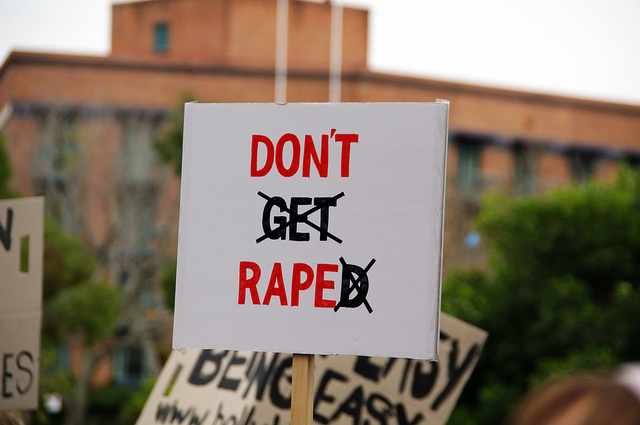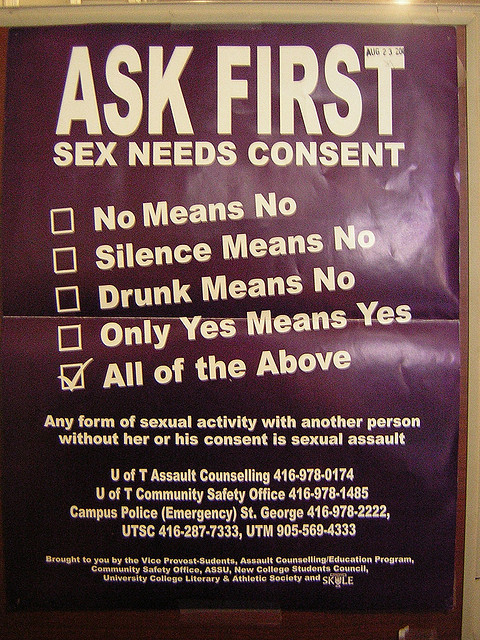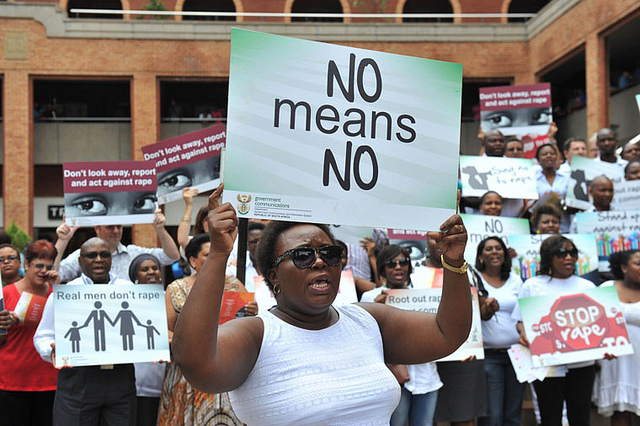Imagine being the victim of a sexual assault. You are shattered emotionally and physically. Somehow you manage to find the strength to report this horrific experience to authorities. The perpetrator is found responsible for harming you. What happens next seems inconceivable: the authorities allow the guilty party to choose his own punishment. Where on Earth could such a thing happen? Not here in America, surely–most certainly not in the conservative Midwest. Yet such a thing did happen recently in Iowa.
This story is a hard one for me to cover and yet it is one I am determined to share because it hits close to home for me. The incident in question took place at Central College in Pella, Iowa: a town with a strong, proud Dutch heritage and a population just over ten thousand. Central College is a place dear to my heart, as I graduated from Central in 1997 and have many fond memories of my time there. It hurt my heart to write this story because it meant acknowledging that the place where I found so much beauty and joy is also a place where profoundly bad decisions have been made and poor judgment carried out for its students. Yet I feel that the story must be shared because it is indicative of a larger problem found on campuses across the country.
Per a report in the Des Moines Register , the victim–a student-athlete at Central–and the perpetrator had been friends since 2011 after meeting on campus. In spring of 2013, “the two met up after a night of drinking separately and agreed to watch a movie at his place. The female student said they talked and listened to music, eventually kissing…the man asked if she was ready to have sex, and she said no…she fought him and repeatedly told him “no” as he tried to take off her clothes…he became more aggressive, told her to be quiet, grabbed a condom from his desk drawer, put a pillow over her face when she tried to yell for help, and raped her.” The male student later claimed that the sex was consensual.
Over a period of several months, the young woman struggled to come to terms with what had happened. When she finally approached college authorities, they told her they could do nothing unless/until she reported the rape to police. However, Title IX legislation states that “schools should not wait for the conclusion of a criminal investigation to begin their own investigation or to take steps to protect the victim”, according to the Department of Justice and the US Department of Education’s Office of Civil Rights. Finally, the school acted; per the Register, the Dean of Students issued both students a no-contact order on January 17 of this year, “a day before the young woman returned to campus. The move notified the male student before she had consented to making her complaint public, which is forbidden under federal law.”
Following an investigation the case went before Central’s Sexual Misconduct Hearing Committee three weeks ago. Over the course of an eleven-hour hearing, the victim faced hours of questioning; in fact, the man accused of assaulting her was allowed to pass questions to the committee chair to be answered by the victim. Two weeks ago, the five-member panel issued their decision, which was that the accused male student “more likely than not” committed the assault. He was given his choice of punishment: be expelled before graduation or “stay in school with the conditions that he not walk in the ceremony and allow the college to notify a future employer and other schools that he’d violated the code of conduct”. He chose to stay and graduate. This outcome came as a shock to the victim; after all the college handbook states that “nonconsensual sex is rape under criminal law, and those found responsible will face a recommended sanction of expulsion”. However, the school’s conduct rules also say that the committee has the right to alter those sanctions in the case of “mitigating circumstances”–namely, the contradictory statements given by the two individuals involved in the incident.
While I believe that people should be treated as innocent until proven guilty, in this case the accused assailant was found responsible for the sexual assault by the Sexual Misconduct Hearing Committee. Once he was found culpable, the full sanction of expulsion should have been carried out. Yet, it wasn’t. Per a report by the Justice Department , fewer than 5% of completed and attempted rapes of college women are reported to officials. With outcomes like this one it is not surprising to see women giving up hope of being heard and of having their claims taken seriously. Colleges must not allow those found responsible for sexual assault to choose their own punishment. A serious conversation about the way sexual assault is handled on college campuses needs to happen, and it needs to happen sooner rather than later.
**Central College President Mark Putnam has responded to the original Register Article; you can read his statement here .



